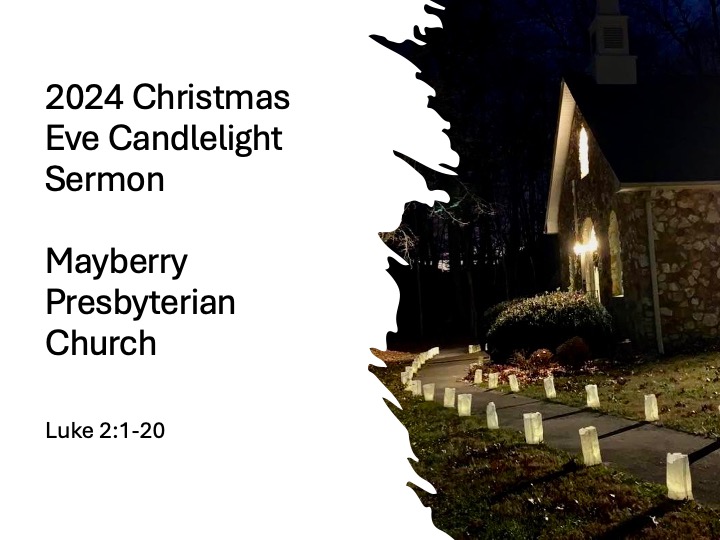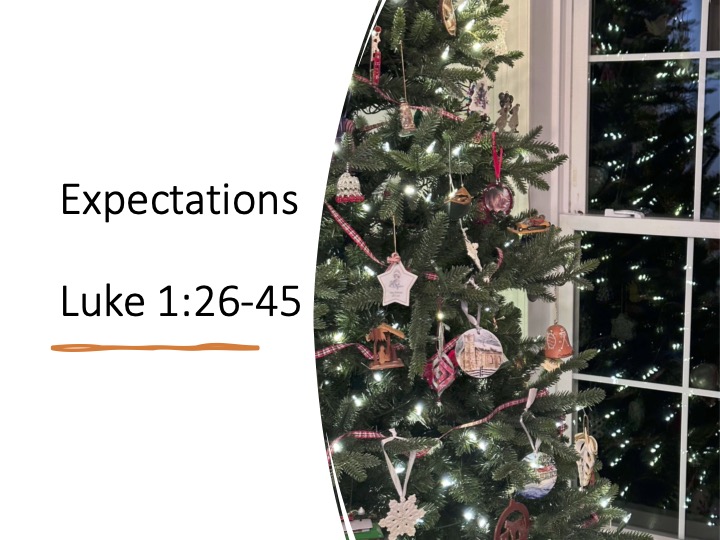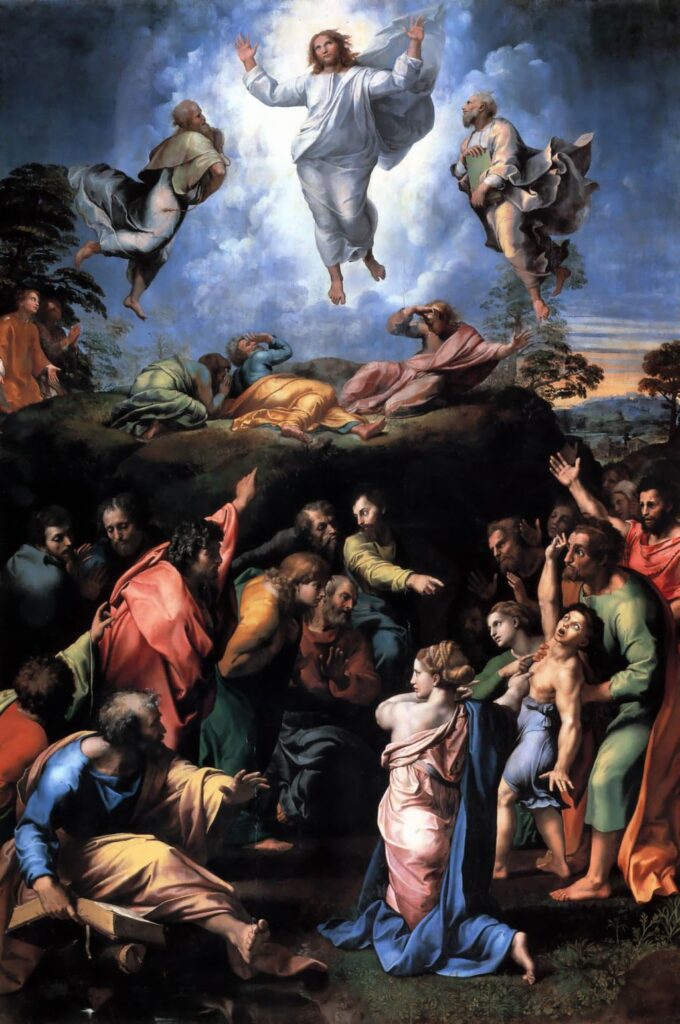Jeff Garrison
Mayberry Church
Christmas Eve 2024
Luke 2:1-20
This is my favorite service of the year. The candles, the carols, at night, it all comes together as we celebrate Christmas.
The birth of a child opens new possibilities, and the child whose birth we celebrate this evening offers us a glimpse into the workings of God. Through Jesus, we experience grace, forgiveness, love, and hope. We live in a troubled world. It was that way when Jesus was born, too. But Jesus’ coming provides us with meaning and hope for today and eternity. May your celebration tomorrow be filled with joy.

During Avent, I often read a book about Christmas. This year it was A Ukrainian Christmas. Ukraine is a country where the east and the west collide. We see this collusion in the current war, but the Christmas season is another example. It’s resulted in Ukraine kind of having two Christmases, the Western’ world’s celebration on December 25 and the Eastern world’s celebration on January 6.
One of the influencers on Christmas in Ukraine came from German settlers who brought Christmas tree with them. In this way, Ukraine is like us, for Christmas trees in our county also came from German settlers in the first half of the 19th Century.
But many churches in Ukraine added their own twist. They leave the lights off the tree in church and have the church’s members bring lights to hang on the tree. They do this because they believe the light belong with the members, not within the church. We’re supposed to take the lights with us when we go out in the world, not hid them under a basket. Or to paraphrase Jesus in the Sermon on the Mount, “lock them up in a church”. Think about this evening when you drive home together and see all the lights on homes. We are to be the light in the world.
This evening, I am reflecting on Luke’s account of the Christmas story which we’ve heard. I want to highlight three items this evening:
the role of Caesar,
the message of the angels,
and the significance of the shepherds.
Luke begins by informing us who’s in charge of the empire, Caesar Augustus. His birth name was Octavian, and he was the son of Julius Caesar’s nephew. On the Ides of March, 44 BC, Julius Ceasar was assassinated. 19-year-old Octavian set off with Mark Antony to defeat those who killed Julius Caesar. Two years later, they defeated the opposition forces and killed Brutus and Cassius. Octavian then ruled much of the empire. A decade later, after Antony joined with Cleopatra, he defeated their armies and gained control of the entire empire. Much of this is remembered through the plays of William Shakespeare.
In 27 BC, the Roman Senate gave Octavian the venerated name of “Augustus,” which means “reverenced.” As his rule continued, a cult arose about the belief he was divine. There was even a myth, like that of Alexander the Great two centuries earlier, that his father was a god.
By the time Jesus was born, some were proclaiming Augustus birth as the beginning of the “good news.” The same word, “good news, from which we get evangelism, was applied to Augustus as to Augustus may have been the most powerful person in the Western World up until this point. He controlled the empire. Rome entered a long period without wars with the empire’s external enemies subdued. Unlike Julius Caesar, who was a warrior, Augustus was seen as a man of peace. Of course, it was a brutal peace, enforced by Roman legions and terrible executions of those who dared challenge Rome’s authority. But that’s a story for Good Friday.
What’s important to understand is the world in which Jesus came already had someone whom people considered the bearer of good news, the prince of peace.
This brings me to the second move I’d like us to consider. The angels use that same language which referred to Augustus to refer to the child born in Bethlehem. The singing angels proclaim to the shepherds “good news for all people. A child who will bring peace to those he favors.
In a subtle fashion, Luke introduces conflict into his story. Who will win? The empire? Or the poor child born in obscurity in a far unknown region of the empire? One who some think is divine, or the one who is divine? Time will tell.
Then comes the third move, the shepherds check out the baby… We have tended to romanticize shepherds… with shampooed sheep munching on grassy hillsides. But reality isn’t nearly as pristine. It was a dirty business. When it rains, they get muddy. You deal with poop. You live outside with the animals, moving them from one grassy pasture to another. Showers are only available during the rainy season. The life of a shepherd was anything but romantic. Shepherds were dirty and looked down upon by the rest of society. Society placed them right up there with gamblers and tax collectors. Some Jews maintained they didn’t know the difference between mine and thine. People considered them thieves and some probably were. They were so looked down upon they weren’t allowed to serve as a witness in court.
The contrast between the shepherds and Caesar couldn’t have been more distinct. And who received the message that first Christmas morning? Not those in the royal courts. What does this tell us about the gospel?
One more thing… You know, the temple in Jerusalem required a lot of animals for sacrifices. There was a zone around Jerusalem, which included Bethlehem, in which the animals raised were selected over for the temple’s altar. So, these shepherds were most likely raising animals bound for the temple. With their dirty job, they help people obtain atonement for their sins, but now they rejoice for the one who will truly atone for our sins.
And finally, what did the shepherds do when they encountered Christ. All our nativity scenes show them bowing in reverence, and that may have been the case for they wouldn’t want to wake the sleepy baby. But when they got out of sight, on their way back to their flocks, they joined the angels in praising God.
So let me go back to the story I began with, about the churches in Ukraine not putting lights on the trees. It’s because they know we all should be one flicker of God’s light in the world. We’re to praise God for what God has done for us and to let our lights shine to show God’s work. The shepherds did that, and so should we.
So, when, in just a minute, we light the candles and cut down the lights, look around at the lights within this building and remember we’re to take those lights out into the world, where they belong. Amen.
Resources:
Edwards, James R., The Gospel According to Luke, Grand Rapids: Eerdmans, 2015.
Gerbish, Nadiyka and Hrytsak, Yaroslav; A Ukrainian Christmas, Nadiyka Gerbish and Yaroslave Hrytask, translators, Sphere, 2022.















